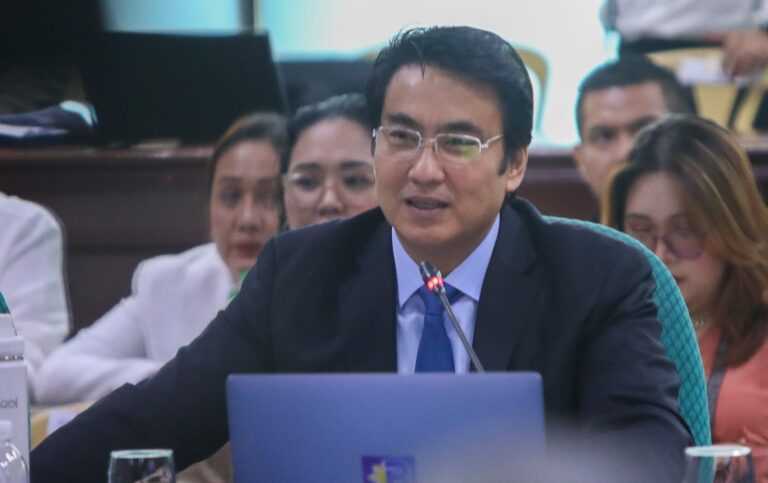Marcos signs ‘anti-no permit, no exam’ bill into law

FILE PHOTO: Senator Ramon “Bong” Revilla Jr. presides over the Finance committee meeting of the Commission on Appointments Wednesday, March 13, 2024. On Friday, March 15, Revilla said President Ferdinand Marcos Jr. has signed into law the “Anti-No Permit, No Exam Act.” (Bibo Nueva España/Senate PRIB)
MANILA, Philippines — Sen. Ramon “Bong” Revilla Jr. announced on Friday that President Ferdinand Marcos Jr. has the “Anti-No Permit, No Exam Act” into law.
Revilla, the main proponent of the law, praised its passage as Republic Act No. 11984, ensuring students can take exams even if they have outstanding fees.
According to Revilla, the law stipulates that social welfare development officers in the municipality, city, or province, or the regional office of the Department of Social Welfare and Development could issue certificates for the disadvantaged students due to calamities, emergencies and other justifiable reasons.
Sen. Sherwin Gatchalian also thanked Marcos for signing the law.
“I thank President Ferdinand Marcos Jr. for signing the ‘No Permit, No Exam Prohibition Act’ (Republic Act No. 11984). The signing of this law ensures that financial difficulties will not hinder our disadvantaged students from meeting their academic requirements on schedule,” said Gatchalian in a statement.
READ: ‘No permit, no exam’ prohibition is counterproductive
Revilla’s office released to reporters a signed copy of the bill, which bore Marcos’ signature. According to the copy, it was approved on March 11.
However, the official copy has yet to be released in the Official Gazette.
READ: Scrapping ‘no permit, no exam’ rule won’t aid students – private schools
The Palace has also yet to announce that Marcos has signed the bill. INQUIRER.net has reached out to Malacañang regarding the matter but it has yet to receive a response as of writing.
“No youth should worry that they could not take an exam or that they could not graduate because they have no funds. Poverty should never cripple them and shatter their dreams,” Revilla said in a statement.
Revilla said that under the law, schools are required to accommodate financially disadvantaged students from kindergarten to Grade 12 to take their scheduled periodic and final examinations.
Disclaimer: The comments uploaded on this site do not necessarily represent or reflect the views of management and owner of Cebudailynews. We reserve the right to exclude comments that we deem to be inconsistent with our editorial standards.
